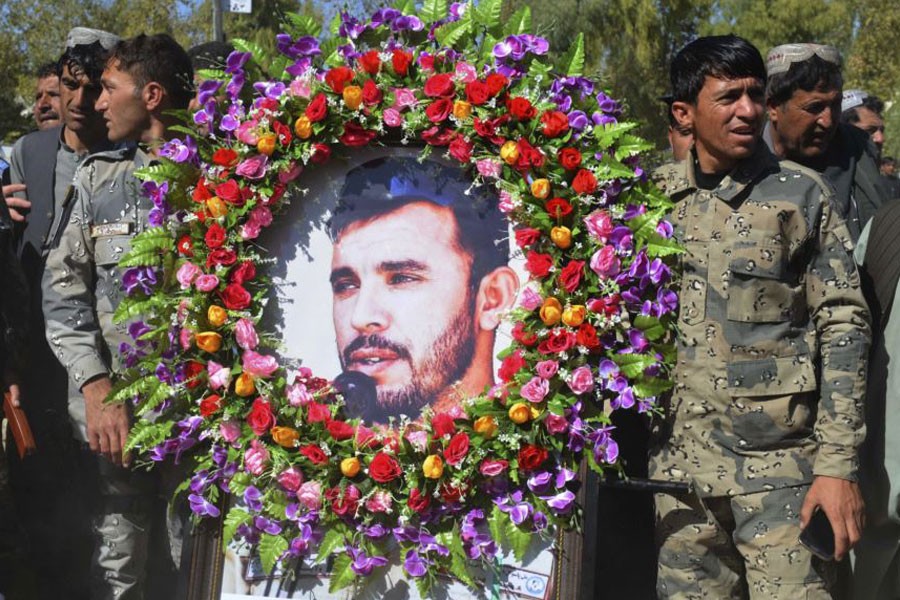Afghanistan’s southern province of Kandahar votes in parliamentary elections on Saturday, a week after 32 of the country’s 34 provinces went to the polls, a delay caused by the assassination of its police chief by Taliban insurgents.
During two days of voting last weekend, insurgents launched some 250 attacks across the country, killing at least 50 people and wounding more than 100, the interior ministry said.
Kandahar police chief General Abdul Razeq, one of Afghanistan’s most feared anti-Taliban commanders, was killed two days before the elections, leaving a dangerous security vacuum.
“The security forces may not have time to regroup in the aftermath of Razeq’s assassination,” said Graeme Smith, a consultant for the International Crisis Group.
Razeq and Kandahar’s intelligence agency commander were killed when a member of the provincial governor’s bodyguard opened fire on officials leaving a meeting with the US commander of Afghanistan’s NATO-led force, General Scott Miller.
Miller escaped unharmed, but a US general was one of two Americans wounded in the attack that further weakened the hold of President Ashraf Ghani’s Western-backed government on security.
Thousands of soldiers were deployed on Saturday to boost the morale of voters shaken by the killing of Razeq, who was widely credited for maintaining stability across Kandahar, a hotbed of insurgency, says a Reuters report.
Zia Durani, a spokesman for Kandahar police, said security forces were working closely to protect more than 550,000 voters expected to cast their ballot.
Security experts monitoring the polls said Razeq’s killing sent shock waves through the country and there could be further attacks by the Taliban, who are seeking to reimpose strict Islamic law after their 2001 ouster at the hand of US-led forces.
Ghani’s government named Razeq’s brother as his successor after his supporters threatened to block the Kandahar vote.
Razeq’s death could serve as a rallying point for voters, said Dawa Khan Menapal, an independent Kandahar candidate.
“People are determined to take part in the election because they want to show the Taliban that terror cannot stop the Afghans from deciding their future,” he said.
With the Taliban operating freely across much of the country and heavy pressure from international partners for the vote to be held, the election was seen as a major test of the credibility of the government.
Voting in the 32 provinces saw a high turnout but the process was marred by logistical and technical glitches, with hundreds of polling stations failing to open when staff did not turn up.
Elections were also not held in central Ghazni province, southwest of the capital, which is still reeling from Taliban’s takeover in August. It was not immediately clear when they will be held.
Preliminary nationwide results are expected to be released in November. Final results will not be known until the new year.


